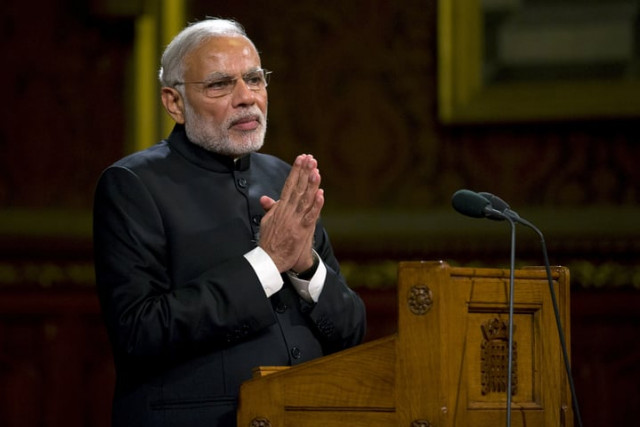In quest of the nuclear deal
It’s surprising that the US today isn’t raising concerns about nuclear weapons being in the hands of such a person

PHOTO: REUTERS
Pakistan’s nuclear programme until recently has largely been ignored barring the printing of an occasional speculative doomsday-scenario article. Perhaps, since Pakistan’s economic situation is so heavily reliant on foreign aid, this is seen as an opportune time to exert pressure. However, it should be understood that Pakistan’s nuclear programme cannot be reined in without addressing territorial disputes which necessitate the existence of these weapons in the first place.
India introduced nuclear weapons in South Asia: Pakistan
The 2005 US-India nuclear deal essentially gave global economies open access to India’s nuclear market and also strengthened India as a counterweight to China. The Bush administration had to resort to threatening countries that had strict non-proliferation regimes in order to gain their support. Many European countries as well as New Zealand faced consequences in their bilateral relations with the US if they had chosen to block India’s exemption in the Nuclear Supplier’s Group. At the same time that the deal was in the works, Narendra Modi was deemed ineligible for a US visa under the 1998 law that holds foreign officials responsible for “severe violations of religious freedom”. Modi, the then chief executive of Gujarat, is the only person ever denied a visa to the US under this provision. In 2002, Modi openly incited religious violence between Muslims and Hindus by allowing the parading of the burnt bodies of Hindu pilgrims, along with supporting a three-day strike called in protest of the Godhra killings. Those three days witnessed mass bloodshed with thousands dead, mainly Muslims. It is surprising that the US and the rest of the world today aren’t raising concerns about nuclear weapons being in the hands of such a person.
The ultimate aim of the Non-Proliferation Treaty is to eliminate nuclear weapons altogether. While that is an idealistic goal, the reality is that countries aren’t rushing to dismantle their arsenals. The US entered into an agreement with India to buy civil nuclear technology, even though India remains outside the treaty. India’s civil nuclear programme is under international inspection but its military programme isn’t.
Guarding nuclear weapons: N-security a sacred job, says army chief
American officials have consistently told US Congress that Pakistan’s nuclear arsenal is safeguarded, with warheads stored separately from delivery systems along with there being protections to prevent unauthorised access. The main American concern is regarding the development of small tactical nuclear weapons, similar to the ones situated in Europe to deter perceived threats from the USSR during the Cold War. The key purpose of developing such tactical nuclear weapons by Pakistan is to prevent an invasion by India’s significantly larger conventional army.
Recently, the US made some unclear mention of recognising Pakistan as a recipient of nuclear technology in exchange for restrictions on the nuclear programme. However, China is already providing nuclear technology to Pakistan. That leaves little incentive for Pakistan to accept limits on its nuclear weapons, especially since acquiring these weapons has proven to be effective thus far at preventing another all-out war with India. The bottom line is that nuclear weapons can be controlled by resolving outstanding disputes, not by asking one side to give them up altogether.
Published in The Express Tribune, November 16th, 2015.
Like Opinion & Editorial on Facebook, follow @ETOpEd on Twitter to receive all updates on all our daily pieces.














COMMENTS
Comments are moderated and generally will be posted if they are on-topic and not abusive.
For more information, please see our Comments FAQ